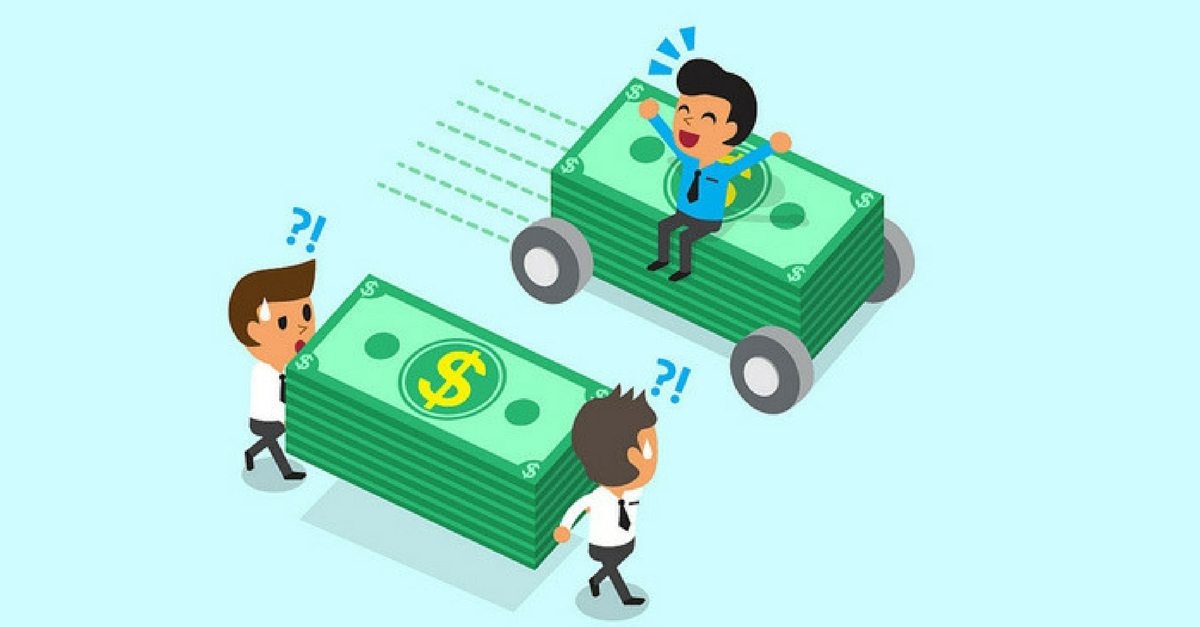
All forms of debt settlement appear on your credit report in the same way. They are listed as an R7 to show that you have entered into some form of settlement agreement for the debt. This agreement might be a debt settlement plan, a credit counselling plan or a consumer proposal. That means that initially, all debt settlement programs affect your credit rating the same way.
We review which option can help you start the recovery process sooner, but to start let’s take a look at the three most common debt settlement programs available in Canada.
Table of Contents
Informal Debt Settlement: The least likely to work and the most risky
Informal debt settlement plans offered through unlicensed debt coaches or debt consultants are not regulated and may be administered by anyone willing to set up such a company. Most informal debt settlement options don’t work.
Recently, Ontario has taken steps through the Collection and Debt Settlement Services Act to ban such companies from charging their fees “up-front” before they actually settle your debts. However, some companies have switched their business model, selling consumer proposals (even if they don’t call them that) and charging the debtor a fee for advice then sending them to a licensed insolvency trustee once they are paid. You should NEVER pay for a referral to a licensed insolvency trustee since all reputable trustees offer free consultations.

Interviewer: I’m going to fire the next one at Ted because it will infuriate him.
Doug: Here we go folks.
Interviewer: We’ve all heard advertising from debt consultants saying that they can consolidate, settle, negotiate your debts, now can they really help or is that a myth?
Ted: Well yeah, the normal line is ‘we can reduce your debt by 70%, we don’t represent your creditors, we represent you, we can help you work out a plan’. I’m not sure where to start with these guys, they just drive me crazy. 1 out of every 4 people in the GTA now are paying a fee to one of these debt consultants, 1 out of every 4. And so, what they do, is they run these ads, preying upon people that are already in financial difficulty. You’re already having trouble paying your bills, and they say ‘well sit down with us and we’ll talk about your situation’ and what they’re doing is they’re crafting their sales pitch. And the sales pitch is, ‘you know what you should do? You should file a consumer proposal, to file a consumer proposal you need to go see this guy’. And now they’ll tell you that guy’s name after you’ve paid him the fee. And earlier I said it was sometimes hundreds, sometimes thousands, I’m not kidding, literally. For the average individual the fee is somewhere around fifteen hundred dollars. And so, they’ll meet with you 2 or 3 times, usually takes anywhere between 4-6 weeks because most people don’t have $1500, and as soon as your last cheque is cleared, ‘now you need to go see this guy over here and he’ll file a proposal for you’. It just drives me nuts.
Interviewer: Ok so we know where ted stands on this, Doug what are your thoughts, is Ted right?
Doug: Yeah, I’m afraid Ted’s right on this one, I would have to agree with him on this one. I remember meeting with a lady a number of months ago who had been paying them $750 a month, for 9 months by the time she came to see us and they still hadn’t called her creditors or anything. In fact, she had never actually met with them in person. It was all done over the phone; I don’t think they were even in the province.
Ted: Is this one of those Internet – sorry these guys – you’re doing this on purpose now okay –
Doug: But it’s true, you don’t even – I mean at Hoyes Michalos you actually get to come in and meet with a live person, you know, more than once, whereas these guys are all you know potentially over the internet on the phone whatever. I’ve got 3 big problems. The 1st one is they aren’t regulated by anyone. So, Ted and I have a licence from the federal government to do consumer proposals. I went to university, when I finished university, I spent another 3 years to become a chartered accountant and after that I spent another 5 years to take all the courses to become a licensed as a trustee and bankruptcy. Anybody can become a debt consultant by hanging out a shingle. Now, I’m not saying that they’re all bad, they’re all evil, what I am saying is before you deal with somebody ask ‘who are you regulated by? Who are you licensed by?’ There are not for profit counsellors here in town who are great. They are a member of the Ontario Association of Credit Counsellors who monitor what they do, so I’ve got no problems at all recommending people like Mosaic Family Counselling here in Kitchener, Guelph Family Counselling in Guelph, Brantford Family Counselling in Brantford, they’re all great people. But when you talk with one of these for-profit guys, okay who exactly regulates you? A lot of them, amazingly enough, are regulated by the Collection Agencies Act. They are actually licensed as collection agents, because that’s the only licensing body there is. So, do I really want to deal with a guy who really is a collection agent? Well probably not, so that’s problem number 1. Ted already mentioned problem number 2, which is these huge upfront fees. And I agree with Ted, I think $1500 is kind of the normal number that you see, and it can be a lot higher than that. 3rd big problem is there is no legal protection from anything that they do. When you file a consumer proposal with us, you instantly get legal protection, nobody can sue you, garnishee your wages until a proposal is decided upon. With these guys, Ted’s right, they tell you ‘hey you know, don’t pay your creditors for a while, we’ll work something out’, in the meantime of course you run the risk of them taking you to court, suing you and garnishing your wages, so I agree with Ted it’s a problem.
Ted: the part that will drive people crazy, at the end of the day, you’re going to have to deal with a Trustee to file a consumer proposal. That’s what we do, that’s what we’re licensed to do, lawyers can’t do it for you, non-profit agencies, none of these other guys can. So, does it make a lot of sense to pay somebody else a fee before you come and see me? No.
Doug: there will be no upfront fees when you come to see us, it’s as simple as that. Now it’s not just because Ted and I are good guys, I mean we realize you don’t have any money, you’re in debt that’s why you’re coming to see us. But we are regulated by the federal government, and one of the terms of our license is we’re not allowed to charge any upfront fees. So, that’s why there won’t be any. So, if you’re talking to someone over the phone from British Columbia, who you’ve never met with and they want $1500, you’ve really got to ask yourself some questions. So do your due diligence, go to their website, go to the Better Business Bureau see what’s there. You know, find out who you’re dealing with before you start parting with your hard earned money.
Bank’s also don’t like informal debt settlement programs and most will not participate.
Credit Counselling Plans: Pooling debts and managing payments
Credit counselling agencies offer a program called a debt management plan. A debt management plan allows you to pool your debts together and make one monthly payment to the credit counsellor.
Debt management plans do not settle your debts. You must repay your debts in full if you choose a debt management program. It is possible to reduce or freeze any new interest but you still pay all of the original debt over a period of 48 to 60 months.
If you have the ability to repay 100% of your debt then credit counselling as a viable option.
Choosing the credit counselling route does not mean your credit report will not be affected. A DMP will still appear on your credit report as an R7 and this will remain for 3 years.
Because you are required to repay 100% of your debts, your monthly payments will be higher than they will be through a consumer proposal offered through a Licensed Insolvency Trustee. This may limit your ability to build savings which can go a long way towards making you more credit worthy once the program is complete.
Consumer Proposal: Legal debt settlement through a licensed insolvency trustee
A consumer proposal is a legal procedure where you repay a portion of what you owe over a maximum of five years.
Most proposals allow you to settle your debts for about one third of what you owe. The result is that your monthly payment is much lower than it would be in any other debt settlement program. This is just one of the benefits of a consumer proposal over most other programs.
Again, the credit report impact of a consumer proposal and debt management plan are the same. However in a consumer proposal you pay less. This makes it easier to build an emergency fund and save a larger down payment for purchases like a car or house after your program is completed.
Only licensed insolvency trustees (the new designation for bankruptcy trustees in Canada) may administer a consumer proposal, so before you sign any agreements to pay, make certain you are dealing directly with a licensed trustee and not a debt consultant that will pocket your money and refer you elsewhere.
When considering your debt relief options and how debt relief works, getting out of debt should be your priority.
You should consider which option will allow you to eliminate your debt for the lowest cost.
For some individuals that does mean filing bankruptcy particularly if you have no assets and a lower income.
If however your income is above the surplus income threshold, or you have assets that you might lose in a bankruptcy, then a consumer proposal may be a better choice. With a consumer proposal you are spreading the cost of your insolvency over a period of time (lowering your monthly payments) and preserving assets you might want to keep against the quicker alternative of a bankruptcy.
A lower monthly payment through a consumer proposal can help you balance your monthly budget so that you are able to rebuild your finances even while you are still in the program. Many people find they are able to start to save money while in a consumer proposal because their monthly payments are significantly less than they were on their debts before they filed.
The key is to focus on the future rather than the past. Decide where you want to be, not on where you’ve already been, and choose the best way to get there.
This is where a debt assessment with a Licensed Insolvency Trustee is useful. We can help you review all these options based on your specific debts, your income and your priorities. Contact us today to book a free consultation so we can give you a plan to be debt free.






